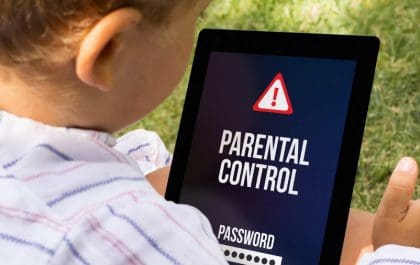Fostering Emotional intelligence in children
By Kathryn Rea Smith, PH.D.
 I am amazed at the things children are learning in school these days! Our teachers do an incredible job of teaching math, language arts, science, social studies, foreign language, technology, health, physical education, art and music. Children absorb academic knowledge like sponges, and their achievements are reflected in report cards and on standardized test scores. In school, children learn “how to learn” and in the process develop organization and study skills that serve them well as they move through life. Children also learn social skills, and teachers serve to model and instruct students on appropriate ways of behaving.
I am amazed at the things children are learning in school these days! Our teachers do an incredible job of teaching math, language arts, science, social studies, foreign language, technology, health, physical education, art and music. Children absorb academic knowledge like sponges, and their achievements are reflected in report cards and on standardized test scores. In school, children learn “how to learn” and in the process develop organization and study skills that serve them well as they move through life. Children also learn social skills, and teachers serve to model and instruct students on appropriate ways of behaving.
One thing that is not directly included in the curriculum, though, is instruction in developing “Emotional Intelligence.” Emotional Intelligence, or “EQ,” refers to the ability to identify, regulate and control one’s emotions and accurately perceive others’ emotions. I think it would be wonderful if all students could take a class called “Emotions 101,” so that everyone has a chance to learn the basics of dealing with emotions. However, at this point direct instruction in EQ must be addressed outside of school. In this article I will describe ways parents can foster the development of EQ in their children.
“Emotional Intelligence, or “EQ,” refers to the ability to identify, regulate and control one’s emotions and accurately perceive others’ emotions.”
First, I want to make a disclosure. Even though as a psychologist I make my living helping others with their feelings, I did not learn these skills in my childhood home. Rather, I learned from working with therapists and reading books on the subject. My parents are the first to admit that when my sister and I were children, they did not teach us about feelings. It was not something they knew much about. Change came when I was in college and my parents received lay ministry training which provided instruction about emotions, compassionate listening and empathy. My mom actually called me at my dorm to say she wished she and my dad had taken a different approach to parenting, one that focused on feelings. I know from my work as a therapist that my family was not all that unusual. Many adults grew up in families where feelings were not addressed. As a therapist, I have worked with people who have average or better IQ’s but struggle to identify and express their emotions. They need help from me in learning how to name, discuss, regulate, and tolerate their feelings. Many of my patients take to this process like ducks take to water. Almost all of them say that this kind of learning would have been so much easier if it had taken place during childhood!
Until the time that we have “Emotions 101” classes in school, the responsibility for developing EQ in children falls on the shoulders of families and family surrogates. The good news is there are many things parents can do to foster EQ in their children. One of the most impactful things parents can do is to develop their own EQ. Parents can model EQ by talking about their own feelings and using a feeling vocabulary in the home. As an example a father could say “I want you kids to know I’m feeling sad lately because the anniversary of my father’s death is nearing.” A mother might say “I’m feeling disappointed, because I have to work this afternoon and won’t be able to come to your ball game.” Or “I felt really angry and scared today when another driver cut me off and almost caused me to wreck the car!” When parents use feeling words in everyday conversation in the home, children learn that feelings are natural and that everyone has them.
“My parents are the first to admit that when my sister and I were children, they did not teach us about feelings.”
In addition to modeling EQ for their children, parents can directly foster the development of EQ. Children can be told the names of the feelings they are having. For instance, when a preschooler says “I hate you, Mommy!” the mother can respond with “I can tell you are feeling really mad at me right now. You don’t like it when I tell you no.” When a child is trying really hard to ride a bike without trainers and starts to cry, the father can say “Naturally, you’re feeling frustrated and discouraged—it can be hard to learn something new, but keep trying and you will get it!”
Parents can tell children there are no wrong feelings and no feelings are off limits for discussion including difficult feelings such as anger, sadness, jealousy, insecurity and loneliness. Anger, especially, often gets a bad rap when in reality it is just an emotion like any other. Obviously, children need to learn to control their behavior when they are angry and to use words to express their anger. Paul White, LCSW, a child therapist, has a great intervention parents can use to help young children with anger. He recommends telling children, “It’s okay to be mad—it’s not okay to be bad.” In other words, validate the feeling of anger but set limits on any inappropriate behaviors kids do because they are angry.
“I think it would be wonderful if all students could take a class called “Emotions 101”so that everyone has a chance to learn the basics of dealing with emotions.”
Another thing parents can do to foster EQ is reinforce talking about feelings. When children initiate a conversation about feelings, parents can say “I am really proud of you for coming to me—it takes courage to talk about your feelings” or “I am so grateful you feel comfortable trusting me with how you feel.” At the end of a discussion of feelings, parents can ask “How do you feel now?” Usually children feel better after talking with a trusted adult so parents should point this out by saying “See, it really helps to talk when you are upset about something, doesn’t it?”
I predict one day teaching emotional literacy will be broadly recognized as being just as important as teaching reading, writing, math and science. At that point, children will take classes in school on EQ. Until then, there are many resources available for parents to assist with fostering EQ. A brief survey of Amazon.com reveals several books dedicated to the topic. There are many fine websites such as EQI.org with practical suggestions as well. Consultation with mental health professionals is another great option for parents who wish to increase their own EQ and learn how to help their children with this important developmental task.
Kathryn Rea Smith, Ph.D. is a private practice psychologist specializing in assessment. She is the married mother of two school-aged boys.
Related posts
Newsletter Subscribe
Newest Posts
Set Up a Parental Control for Online Safety
Have you ever wondered how long your children spend in front of a device without your supervision? Yes, it is…
Adopt A Life, Save A Life
By Jeff Ashin, CEO, Young-Williams Animal Center. Photo by: Young-Williams Animal Center Are you or your child thinking of adding…

